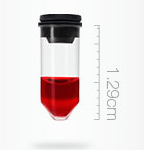Very recently a review committee in the U.K. made a preliminary recommendation that the government’s National Health Service should not pay for a newly approved medicine that greatly reduces or alleviates the symptoms of myelofibrosis (MF). MF develops when there is progressive scarring in the bone marrow that affects one’s ability to make blood cells. Other organs like the spleen and liver try to take over the job and they become enlarged. Along with that, a patient experiences itching, fatigue and weight loss, as well as general malaise and suffering.
Very recently a review committee in the U.K. made a preliminary recommendation that the government’s National Health Service should not pay for a newly approved medicine that greatly reduces or alleviates the symptoms of myelofibrosis (MF). MF develops when there is progressive scarring in the bone marrow that affects one’s ability to make blood cells. Other organs like the spleen and liver try to take over the job and they become enlarged. Along with that, a patient experiences itching, fatigue and weight loss, as well as general malaise and suffering. While a new oral medicine, Jakafi in the U.S. and Jakavi in Europe, has not been proven to reduce or reverse the scarring (fibrosis), most patients feel the drug gives them back a full and productive life. However, it’s very expensive, more than $7,000 a month.
I know all about this personally, since I was officially diagnosed with MF nine months ago and began taking the medicine as symptoms developed last fall. It has worked wonders. I thank my lucky stars that my U.S. private insurance pays for it. It allows me to be productive, support my family and contribute to others. My belief is that the expenditure is worth it not only for me, but for society. By helping me feel good I can work, pay taxes and support others.
The UK panel faces tough choices. Money spent on a “quality of life” drug has to come from somewhere in the health system. I understand that. I also understand these drugs are priced very high to bring a return on investment to the pharmaceutical company, often initially a smaller one that took the risk to develop an important new medicine. In this case, the pre-existing treatments are not very effective.
It would be great if this new drug can be shown in the long run to treat and reverse the underlying disease or significantly lengthen survival. So far there is no evidence for that. Fortunately, other drugs, perhaps used in combination, may lead to that result. But, in the meantime, should the UK, and possibly other government health systems, force patients to suffer when breakthrough medicines exist?
Fortunately, the decision is not final yet and there is a period of comment until June. My hope is the pharmaceutical company, advocates, patients, and the government can all reach a middle ground. Knowing how this “quality of life” drug has allowed me to live a full life, I would hate it if that opportunity is denied to my brothers and sisters in the U.K. or anywhere else.
What are your views on the tough choices for paying for such treatments in these tight economic times?
Wishing you the best of health!
Andrew









